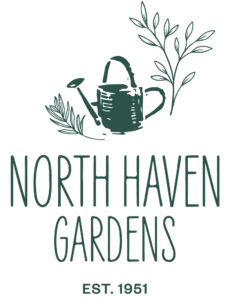Home-made compost is so valuable to the garden, it’s often referred to as ‘gardener’s gold’. The rich, dark, earthy qualities of compost improves soil aeration, loosens clay soils, helps sandy soils retain water, improves soil fertility and stimulates healthy root development, among many more garden benefits.
Most gardeners never have enough, and it’s easy to begin making your own. Here are the basics:
- Begin by picking out a composting site. Preferably in a shady, level area of your yard. Be sure it is in a convenient area that offers easy access to your kitchen, your garden, and a water source. The best size for a starter compost pile is 3 x 3 x 3 feet. You can build a wood, box-like structure as a compost bin, create one out of wire or purchase a bin.
- Alternate layers of carbon rich and nitrogen rich ingredients. Add a 3” layer of carbon rich ingredients such as twigs and wood chips, fallen leaves, kitchen scraps (no meat, oil or grease), shredded newspaper and cardboard (not too much). Moisten this and each subsequent layer of material after adding it to the pile. Next, add a 3” layer of nitrogen rich ingredients such as grass clippings, weeds, manure (horse, cow, pig, sheep, goat, chicken, rabbit only) and coffee grounds. For each foot of height add a handful of organic fertilizer and shovelful of finished compost or active garden soil.
Note: Smaller pieced or shredded materials compost much quicker and are easier.
- You could have compost in 2 months! Make sure to keep the pile as moist as a well-wrung sponge—damp, but not soggy. For faster results, make sure to turn every few days. For easier turning, use a hay or digging fork.
Additional Ingredients: You can enrich your compost even more by adding earthworm castings. If an extra decomposition boost is needed, add a compost activator.
Other useful compost tools and products:
- Espoma Bio-Tone Starter Plus – ideal for starting new batches
- Compost activator – to help speed up the process when needed
- Kitchen compost keeper – perfect for making ingredients convenient
Compost Material Guide
|
Type of Material |
Use it? |
Carbon (C)/ Nitrogen (N) |
Details |
|
Algae, seaweed and lake moss |
Yes |
N |
Good nutrient source. |
|
Ashes from coal or charcoal |
No |
n/a |
May contain materials bad for plants. |
|
Ashes from untreated, unpainted wood |
Careful |
Neutral |
Small amounts at most. Can make the pile too alkaline and suppress composting. |
|
Beverages, kitchen rinse water |
Yes |
Neutral |
Good to moisten the middle of the pile. Don’t over-moisten the pile. |
|
Bird, cat & dog droppings |
No |
n/a |
May contain weed seeds or disease organisms. |
|
Cardboard |
Yes |
C |
Small, shredded amounts. |
|
Coffee grounds and filters |
Yes |
N |
Worms love it! |
|
Cornstalks, corn cobs |
Yes |
C |
Best if shredded and mixed well with nitrogen rich materials. |
|
Diseased plants |
Careful |
N |
If pile doesn’t get hot enough, it might not kill the organisms. |
|
Dryer lint |
Yes |
C |
Wet first. |
|
Eggshells |
Yes |
O |
Crush first. Slow to decompose. |
|
Fish scraps |
No |
n/a |
Can attract rodents and cause a stinky pile. |
|
Hair |
Yes |
N |
Scatter so it isn’t in clumps. |
|
Lime |
No |
n/a |
Can kill composting action. Avoid. |
|
Manure (horse, cow, pig, sheep, goat, chicken, rabbit) |
Yes |
N |
Great source of nitrogen. Mix with carbon rich materials so it breaks down better. |
|
Meat, fat, grease, oils, bones |
No |
n/a |
Avoid. |
|
Milk, cheese, yogurt |
Careful |
Neutral |
Put it deep in the pile to avoid attracting animals. |
|
Newspaper |
Yes |
C |
No slick, color pages. Shred first. |
|
Oak leaves |
Yes |
C |
Shredding leaves helps them break down faster. They decompose slowly. Acidic. |
|
Untreated sawdust and wood shavings |
Yes |
C |
Don’t use too much, and no treated woods. |
|
Pine needles and cones |
Yes |
C |
Don’t overload the pile. Also acidic and decomposes slowly. |
|
Weeds |
Careful |
N |
Dry them out on the pavement, then add later. |
|
Sod |
Careful |
N |
Make sure the pile is hot enough, so grass doesn’t continue growing. |

